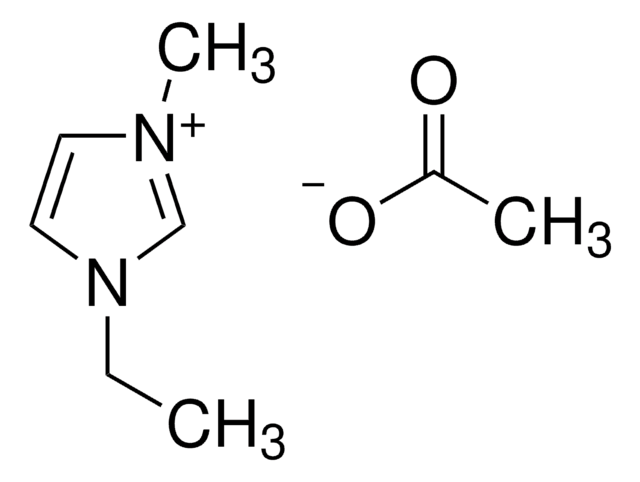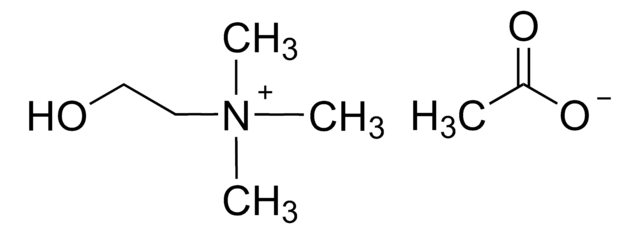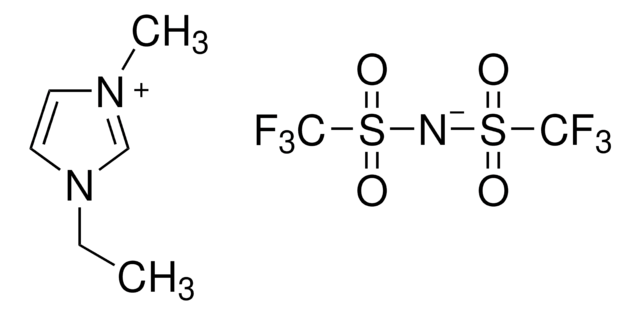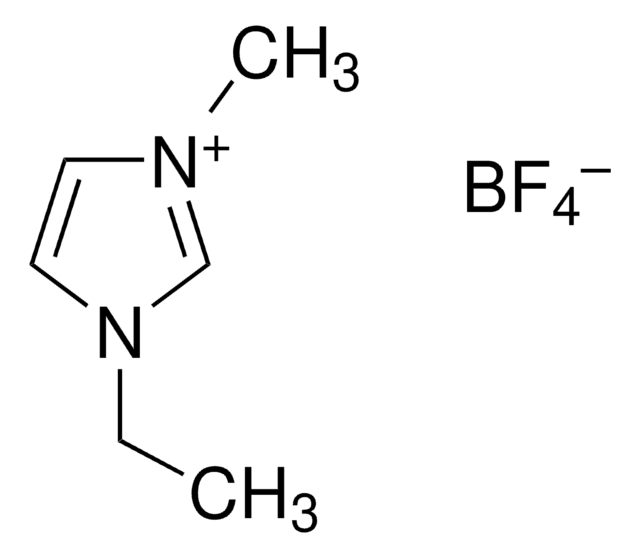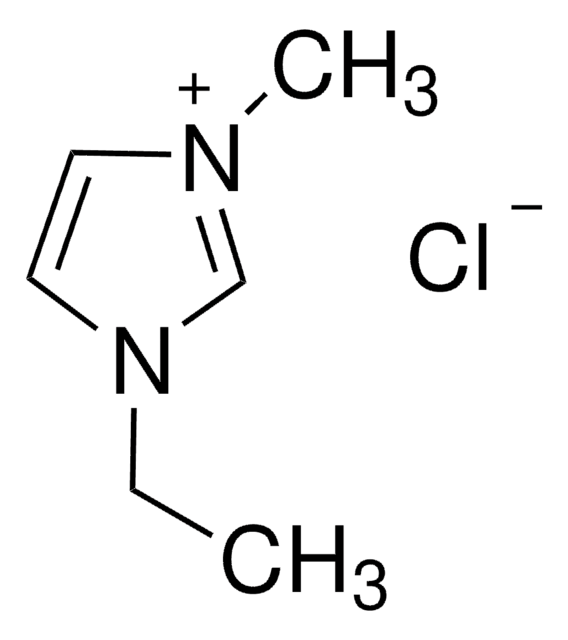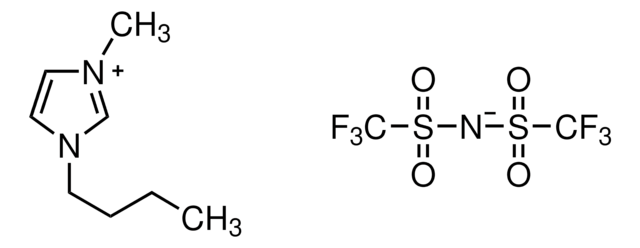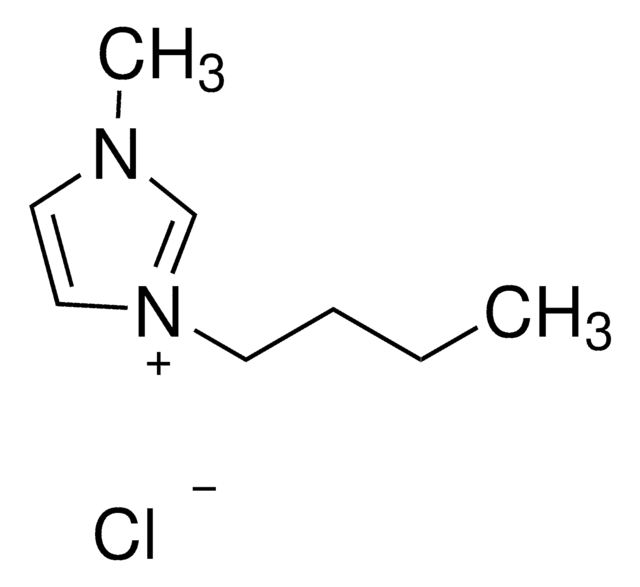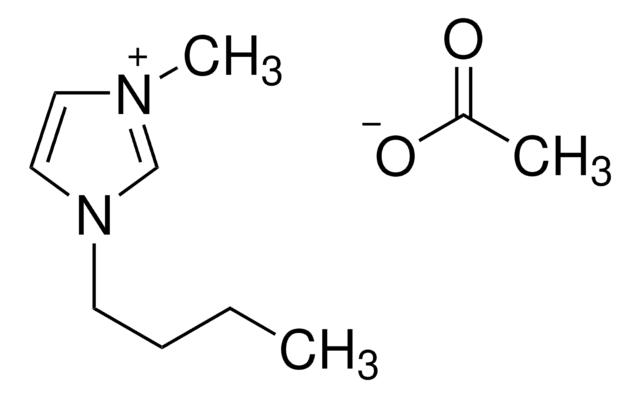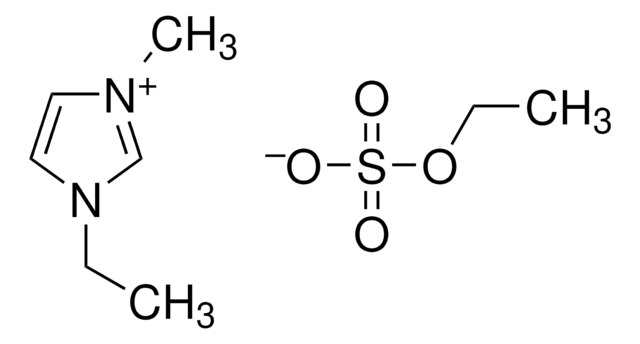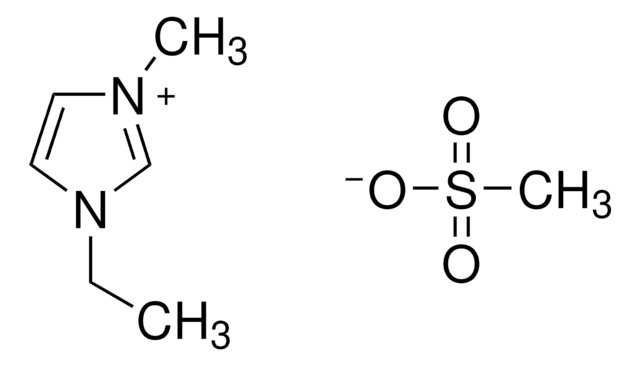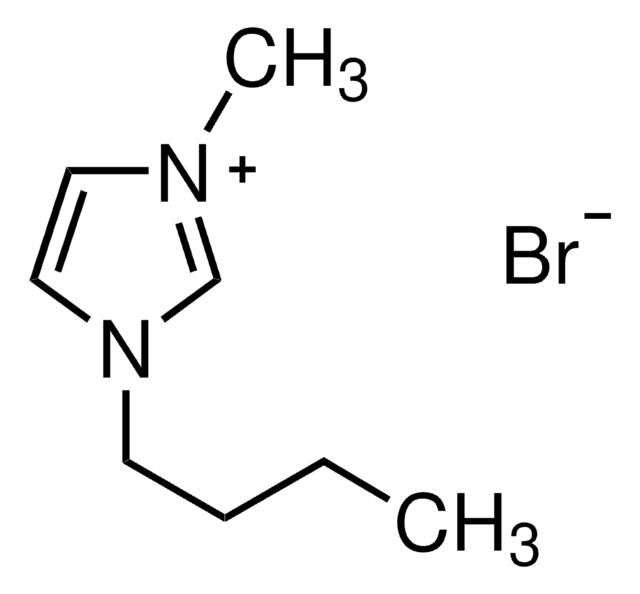900787
1-Ethyl-3-methylimidazolium acetate
≥98%
Synonyme(s) :
EMIM Ac
About This Item
Produits recommandés
Niveau de qualité
Pureté
≥98%
Forme
liquid
Caractéristiques du produit alternatif plus écologique
Catalysis
Design for Degradation
Learn more about the Principles of Green Chemistry.
sustainability
Greener Alternative Product
Impuretés
≤0.5% H2O
Pf
>30 °C (product can occur as an undercooled melt)
Densité
1.101 g/cm3 at 20 °C
Application(s)
battery manufacturing
Autre catégorie plus écologique
Chaîne SMILES
CC([O-])=O.CCn1cc[n+](C)c1
InChI
1S/C6H11N2.C2H4O2/c1-3-8-5-4-7(2)6-8;1-2(3)4/h4-6H,3H2,1-2H3;1H3,(H,3,4)/q+1;/p-1
Clé InChI
XIYUIMLQTKODPS-UHFFFAOYSA-M
Vous recherchez des produits similaires ? Visite Guide de comparaison des produits
Description générale
Application
Produit(s) apparenté(s)
Mention d'avertissement
Warning
Mentions de danger
Conseils de prudence
Classification des risques
Acute Tox. 4 Oral - Skin Irrit. 2 - Skin Sens. 1B
Code de la classe de stockage
10 - Combustible liquids
Classe de danger pour l'eau (WGK)
WGK 3
Point d'éclair (°F)
327.2 °F - closed cup
Point d'éclair (°C)
164 °C - closed cup
Faites votre choix parmi les versions les plus récentes :
Certificats d'analyse (COA)
Vous ne trouvez pas la bonne version ?
Si vous avez besoin d'une version particulière, vous pouvez rechercher un certificat spécifique par le numéro de lot.
Déjà en possession de ce produit ?
Retrouvez la documentation relative aux produits que vous avez récemment achetés dans la Bibliothèque de documents.
Les clients ont également consulté
Part III. The first readily biodegradable ionic liquids
Articles
Dr. Sun reviews the recent advances in solid-state rechargeable batteries and cover the fundamentals of solid electrolytes in solid-state batteries, the theory of ion conduction, and the structures and electrochemical processes of solid-state Li batteries.
Here, we present a short review of ionic liquid electrolytes used in state-of-the-art rechargeable batteries including high performance and low-cost aluminum batteries, non-flammable Li-based batteries, and high-cycling and stable dual-graphite batteries. We also outline the key issues explored so as to identify the future direction of IL development.
Here, we present a short review of ionic liquid electrolytes used in state-of-the-art rechargeable batteries including high performance and low-cost aluminum batteries, non-flammable Li-based batteries, and high-cycling and stable dual-graphite batteries. We also outline the key issues explored so as to identify the future direction of IL development.
Notre équipe de scientifiques dispose d'une expérience dans tous les secteurs de la recherche, notamment en sciences de la vie, science des matériaux, synthèse chimique, chromatographie, analyse et dans de nombreux autres domaines..
Contacter notre Service technique